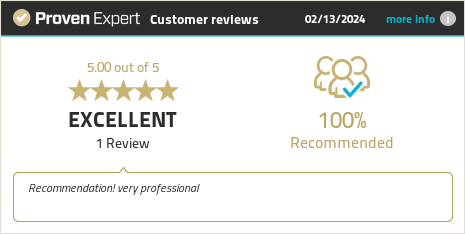In a rapidly evolving digital landscape, data isn’t just a byproduct—it’s the lifeblood of effective online engagement and decision-making. For websites in Morocco, the infusion of data analytics has become a game changer, unlocking insights that drive user experience, optimize content, and enhance overall performance. As Moroccan businesses and organizations establish their digital presence, the ability to harness the power of data transforms mere clicks into meaningful connections. This article delves into the significance of data analytics for websites in Morocco, exploring how it can illuminate user behavior, guide strategic planning, and ultimately ensure a competitive edge in a bustling market. Join us as we uncover the myriad ways in which data analytics is shaping the future of online interaction in Morocco.
Data-driven insights have become essential in enhancing user experience on websites, particularly in a diverse market like Morocco. By understanding audience behavior through robust data analysis, companies can identify trends and preferences that inform both design and content strategies. This involves tracking user interactions, monitoring site navigation patterns, and utilizing tools such as heatmaps and user session recordings. Implementing thes insights enables businesses to create more intuitive interfaces and personalized experiences,ultimately fostering greater engagement and satisfaction among Moroccan users.
Moreover, optimizing website performance through targeted analytics strategies can significantly boost a site’s effectiveness. By leveraging local trends, businesses can tailor their digital marketing efforts to resonate with specific audiences. Adopting advanced analytics tools allows for the identification of key performance indicators (KPIs) that matter most to the target demographic. Consider the following metrics to measure success:
| Metric | Description |
|---|---|
| Bounce Rate | Percentage of visitors who leave after viewing only one page. |
| Conversion Rate | Percentage of visitors who complete a desired action (e.g.,purchase,sign-up). |
| Average Session Duration | Average amount of time users spend on the site. |
By continuously monitoring these KPIs and adjusting strategies accordingly, Moroccan businesses can enhance their digital presence and drive more effective marketing campaigns that resonate with local audiences.
Q&A
Q&A: The Importance of Data Analytics for Websites in Morocco
Q1: What is data analytics and why is it essential for websites?
A1: data analytics is the process of collecting, processing, and analyzing data to gain insights and make informed decisions. For websites, it’s essential because it helps understand user behavior, optimize performance, and enhance user experience.In Morocco, where digital transformation is rapidly advancing, leveraging data analytics ensures websites stay competitive and relevant.
Q2: How can Moroccan businesses benefit from website data analytics?
A2: Moroccan businesses can benefit in various ways. By analyzing user data, they can identify trends and preferences unique to the Moroccan market. This information allows for tailored marketing strategies, improved product offerings, and better customer service. Ultimately, data analytics helps businesses increase conversions and drive growth in an increasingly digital economy.
Q3: What specific metrics should Moroccan website owners focus on?
A3: Website owners in Morocco should focus on metrics such as user traffic, bounce rates, average session duration, and conversion rates. Additionally, tracking demographic data can provide insights into the behaviors and preferences of Moroccan consumers. Evaluating these metrics helps site owners align their content and marketing strategies with their audience’s expectations.
Q4: Are there any challenges Moroccan businesses face when implementing data analytics?
A4: Yes, several challenges exist. Many Moroccan businesses may lack the technical expertise or resources to effectively implement data analytics. Additionally, the need for robust data infrastructure can be a barrier. Businesses may also struggle with data privacy regulations and ensuring compliance. Overcoming these hurdles is vital to harnessing the full potential of data analytics.Q5: How can small and medium-sized enterprises (SMEs) in Morocco start using data analytics?
A5: smes in Morocco can start small by employing user-friendly analytics tools available online, such as Google Analytics or more tailored local solutions. Investing in training for staff can also facilitate better understanding and utilization of these tools. Moreover, it’s beneficial to focus on one key area—like customer engagement—and gradually expand data analytics implementation across the institution.
Q6: can you provide an example of a triumphant data analytics implementation in a Moroccan business?
A6: Certainly! One Moroccan e-commerce site utilized data analytics to track user interactions and discovered a high cart abandonment rate. By analyzing the data, they identified issues like complicated checkout processes. After streamlining their interface and offering targeted promotions, they significantly reduced abandonment rates and saw a 40% increase in completed sales. This example illustrates how actionable insights can lead to tangible results.Q7: What is the future of data analytics for websites in Morocco?
A7: The future looks promising! As internet penetration continues to grow and more businesses recognize the value of data-driven decision-making,we can expect a progressive shift in how Moroccan companies operate online. Innovations in artificial intelligence and machine learning will further enhance data analytics capabilities, enabling even deeper insights into consumer behavior and fueling the digital landscape in Morocco.Q8: How can the government play a role in promoting data analytics in Morocco?
A8: The government can play a pivotal role by providing support through policies that encourage digital literacy and create an enabling surroundings for data-driven innovation. initiatives such as funding for tech startups, establishing public-private partnerships, and enhancing internet infrastructure can significantly boost the adoption of data analytics, ultimately enriching Morocco’s digital economy.
This Q&A aims to shed light on the significance of data analytics in the Moroccan online landscape while engaging readers with relevant and practical insights.
The Way Forward
as Morocco forges it’s path in the digital age, the role of data analytics for websites cannot be overstated. It is not merely a tool but a compass guiding businesses and organizations toward informed decision-making and enhanced user experiences. Embracing data analytics enables Moroccan enterprises to harness valuable insights, tailor their offerings, and connect meaningfully with their audience.
As the online landscape continues to evolve, the commitment to understanding and utilizing data will undoubtedly pave the way for innovation, efficiency, and growth.For those willing to dive into the wealth of information at their fingertips, the potential is limitless. Thus, as we look to the future, let us recognize data analytics as an essential ally in the journey toward a thriving digital presence—not just within Morocco, but on a global stage.












